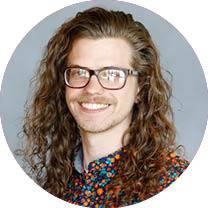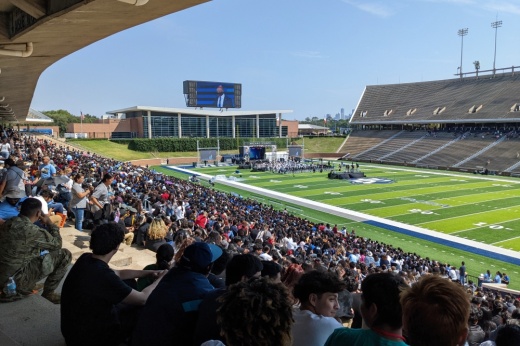Sixty years later, thousands of NASA personnel, elected officials, students, residents and others gathered at the site of the historic speech at 6100 Main St., Houston, to celebrate what humanity has accomplished in space exploration and what is next.
Sept. 10-12 was a weekend of events at the stadium commemorating Kennedy’s “We choose to go to the moon” speech.
On Sept. 10-11, attendees could peruse space exploration and industry exhibits and learn about NASA’s missions, including the upcoming Artemis missions that will take humans back to the moon.
The event culminated with speeches given Sept. 12 recognizing the anniversary of the historic speech. Speakers included NASA Administrator Bill Nelson, Johnson Space Center Director Vanessa Wyche, Rice University faculty and elected officials.
Nelson said Sept. 12, 1962, is one of those rare days when imaginations soared and hearts filled. Kennedy’s famous words inspired a generation, he said, and by 1969, Americans had indeed landed on the moon.
Now, NASA is eyeing not only returning to the moon but going beyond to Mars.
“It’s not going to be easy. It’s going to be hard. Some things never change,” Nelson said. “Doing what is hard and achieving what is great—that is what stirs humankind. That’s what unites us.”
Nelson admitted NASA and Americans had hoped Artemis would already be on its way to the moon, but Nelson stated his faith in the mission and the team.
“We will launch when we are ready, but mark my words: We are going,” he said. “Ladies and gentlemen, Mars is calling. Why? Because it’s in our DNA to explore.”
Wyche said Johnson Space Center, which is also celebrating 60 years this year in Clear Lake, has been at the beginning of humankind’s greatest achievements.
“The Apollo program captured the world’s attention ... to ignite generations of great achievements, exploration and scientific discovery,” she said.
The accomplishments of the past and future have one thing in common: science, technology, engineering and mathematics education. Wyche stated her desire to enhance high school education to create a generation prepared to take on a new era of innovation.
After putting the first woman and person of color on the moon through the Artemis program, NASA will build a sustainable presence there, Wyche said.
“Then we will use what we learn to take the next giant leap: sending astronauts to Mars,” she said.
Wyche invited those in the audience who have not been to Clear Lake to come see what the Johnson Space Center is doing.
“Giant leaps start here,” she said.





